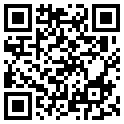A heart attack generally occurs when the blood flow to the heart is blocked or severely reduced, causing tissues in the heart muscles to die out. This process starts when cholesterol, fatty deposits, and other substances build up over time, forming plaques in the heart’s arteries. If these plaques rupture, they can cause a blood clot to develop and block blood flow to the heart.
These events do not take place all at once but gradually, which is why some people typically experience the warning signs of a heart attack hours or days leading up to its more dramatic symptoms, like heaviness in the chest or crushing chest pain. These early signs are not as obvious as one might expect, but knowing how to recognise them could save your life or those of your loved ones. Below are some helpful tips for learning these early signs and knowing when to seek treatment.
Warning signs of a heart attack
Myocardial infarctions or heart attacks generally occur due to a blockage in one of the heart’s blood vessels that prevents it from getting the blood it needs to stay alive. As the heart muscles begin to die, the flow of blood all over the body also gets disrupted. Some heart attacks are unmistakable and happen suddenly; a person may have diffuse sweats, clutch at their chest in pain, vomit, and even faint, all without warning. Most people imagine this when they think of someone having a heart attack.
But as mentioned, there are also heart attacks that come on more slowly and show signs that are not as obvious as the former type. Since these symptoms do not seem like an emergency, many ignore and shrug them off. These include:
- Pain in the back, neck, jaw, or arms
- Tightness or pressure in the chest (instead of pain)
- Shortness of breath
- Indigestion or heartburn
- Cold sweats
- Unusual fatigue
- Nausea or vomiting
It’s important to note that while the symptoms of a heart attack can sometimes be mistaken for other conditions, such as panic attacks, they are not the same. Panic attacks and heart attacks differ in that panic attacks are sudden episodes of intense discomfort or fear that can cause physical symptoms like chest pain, shortness of breath, and rapid heartbeat. These symptoms can be similar to those of a heart attack, but panic attacks are not caused by a blockage in the arteries.
Heart attack signs between men and women
Chest pain is the most common symptom of a heart attack for both men and women, but the latter are more likely to experience its more subtle symptoms. Couple this with the misconception that women are at a lower risk of getting a heart, and you get a recipe for disaster.
As such, it is common for women to experience these less obvious symptoms but brush them off as something else because they do not think they are at risk of suffering a heart attack, which delays them from seeking care and increases the potential of suffering a serious injury. Therefore, health experts highly recommend that any sign of a heart attack be taken very seriously.
Who is at risk of a heart attack?
Anyone can have a heart attack, regardless of health status, sex, or age. In fact, heart attack cases are on the rise among people below the age of 40. That said, certain lifestyle choices and health conditions can put you at a higher risk of a heart attack, including:
- Diabetes
- High cholesterol or high blood pressure
- Obesity
- A history of smoking
- A history of a previous heart attack or heart disease
- A family history of heart attacks
Should any of the above apply to you, it is vital to be more attentive and listen to your body if you experience vague symptoms that may be associated with your heart. This ensures you have a better chance of getting quick treatment to restore your blood flow and survive a heart attack.
What to do if you think you’re having a heart attack
People who notice the early warning signs of a heart attack often hesitate to head to the hospital since these symptoms overlap with other less serious causes. Moreover, it can be frustratingly difficult to explain to a healthcare provider that you just feel that ‘something is not right’. Nonetheless, it is still highly recommended to seek emergency care anyway, as mild symptoms tend to quickly turn severe, and it is always better to err on the safe side whenever in doubt.
Acting quickly ensures the best possible outcome, as a heart attack can seriously damage the heart muscles and cause vital tissues to die fast without urgent treatment. In most cases, it is best to call an emergency hotline when you believe you are having a heart attack, as emergency responders can provide care while transporting you to the hospital.
Conclusion
When it comes to heart attacks, every second counts. Thus, being vigilant about the early warning signs means the sooner you can get treatment, the better the outcome will be. Even if you feel healthy and are in the prime of your youth, it is essential to learn how to recognise the signs of a heart attack and act fast once you feel them.
If you need to consult with a health professional quickly, look no further than the MYCLNQ app. With the app, you can arrange for an online medical consultation in just a few clicks as well as access many other essential medical services you need, such as private ambulance transport, supervised ART tests, medical e-commerce, and more. For more information about the MYCLNQ app, don’t hesitate to contact us at any time.
Reference: WebMD


